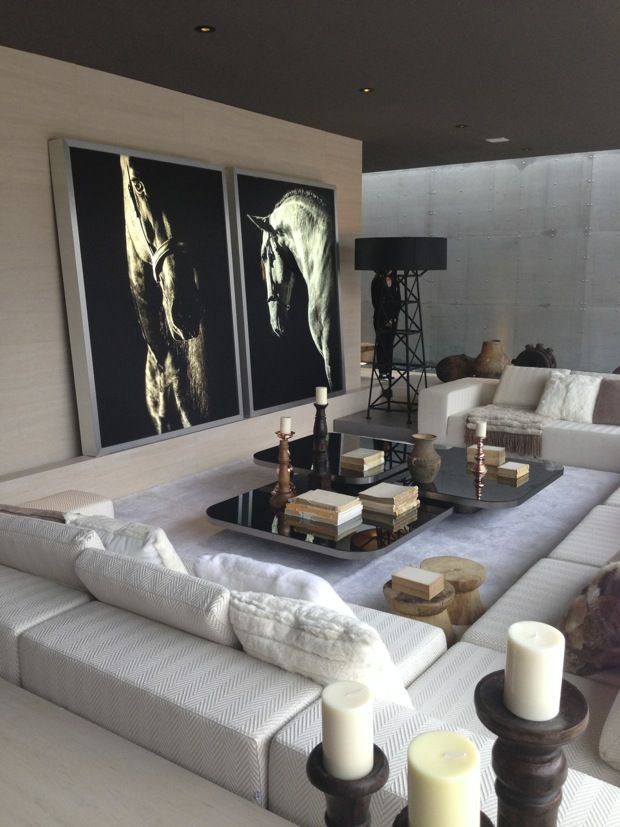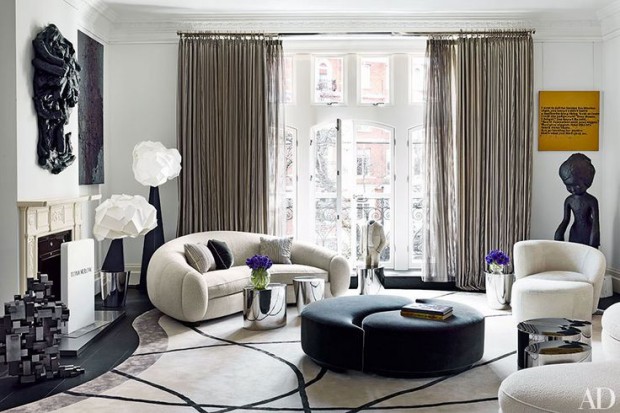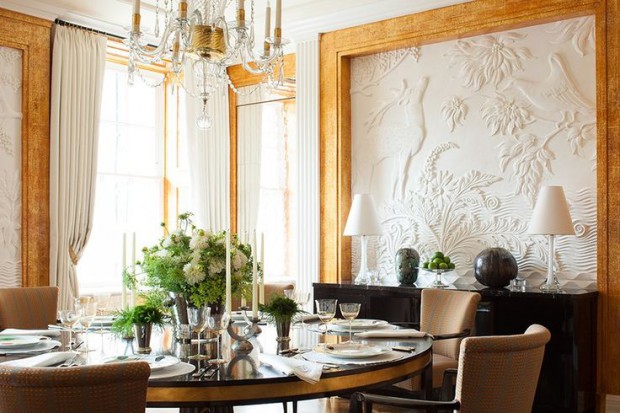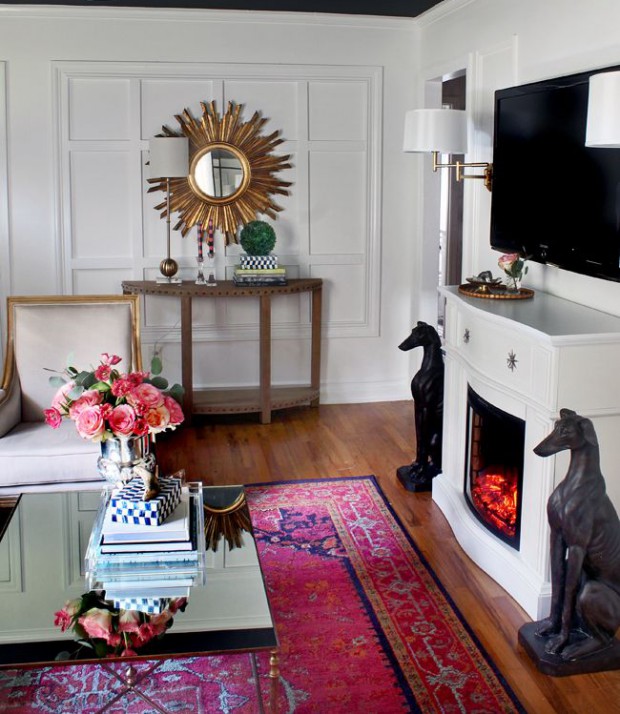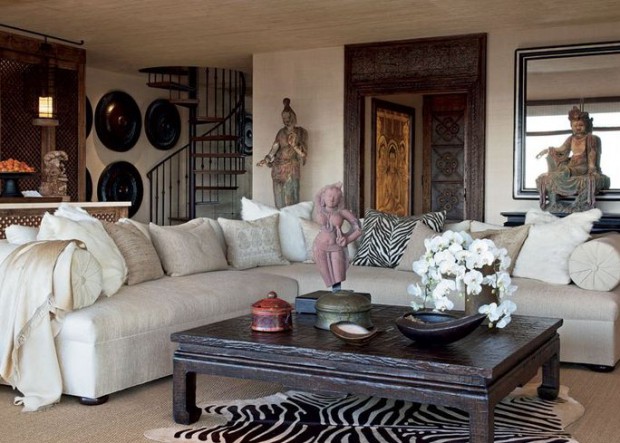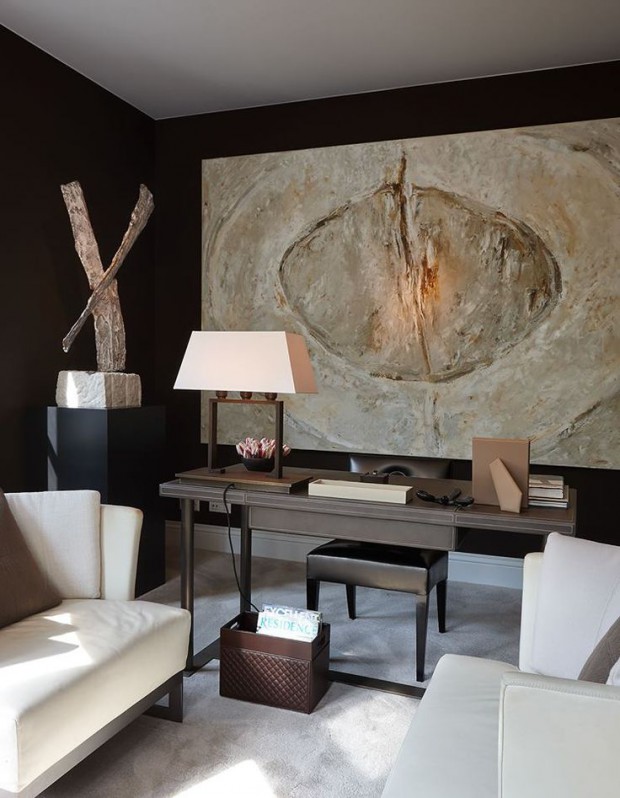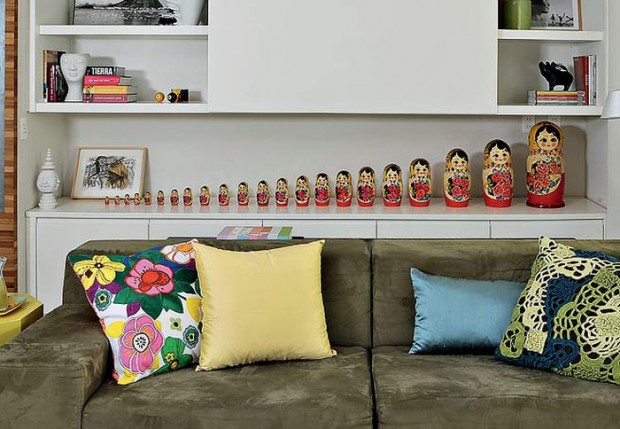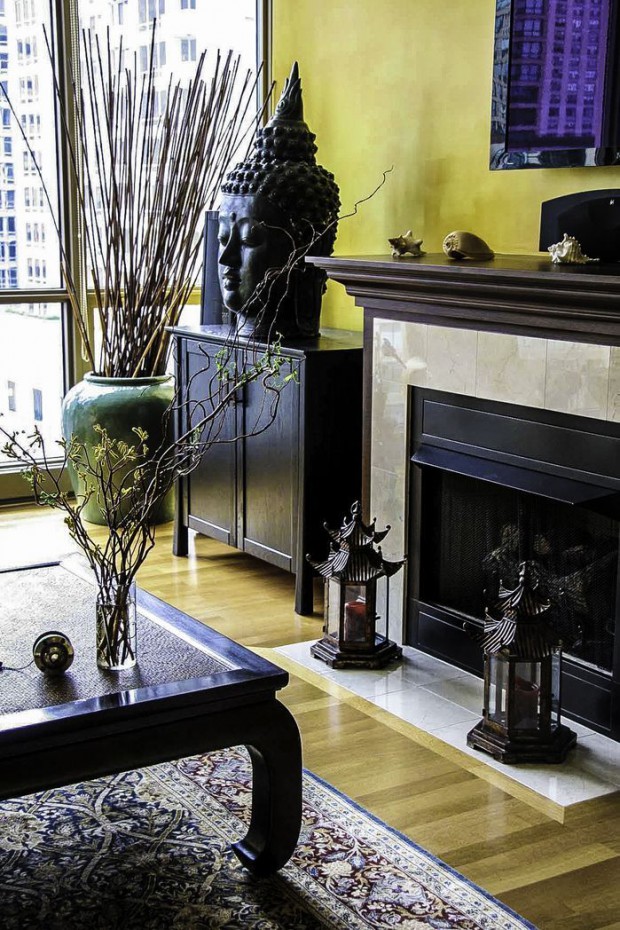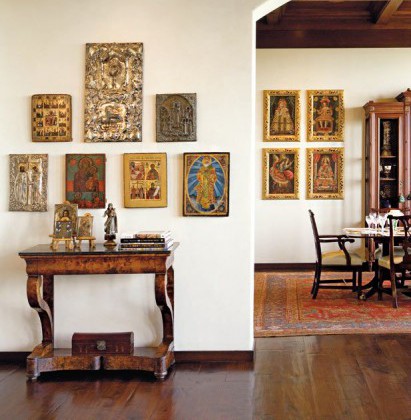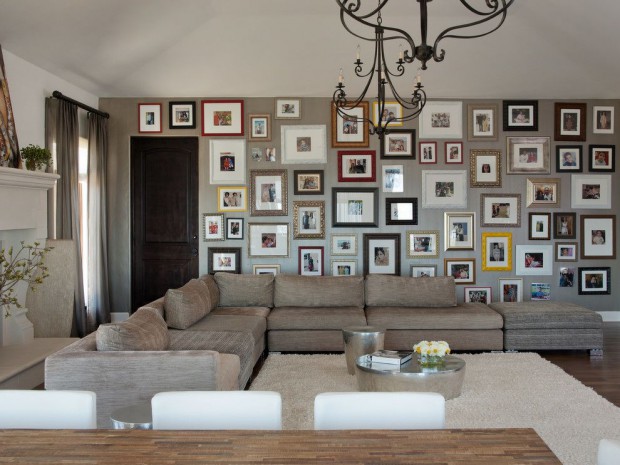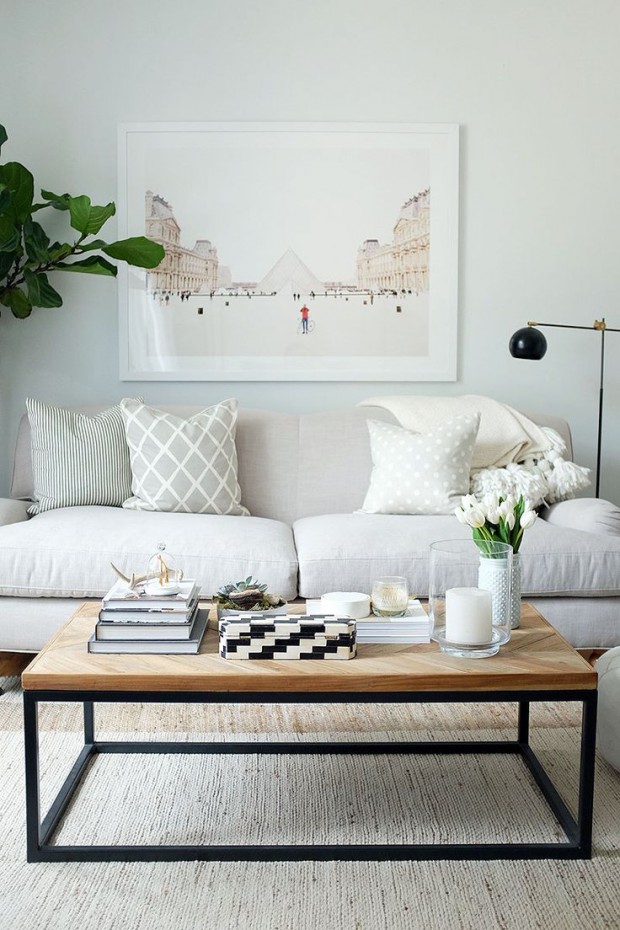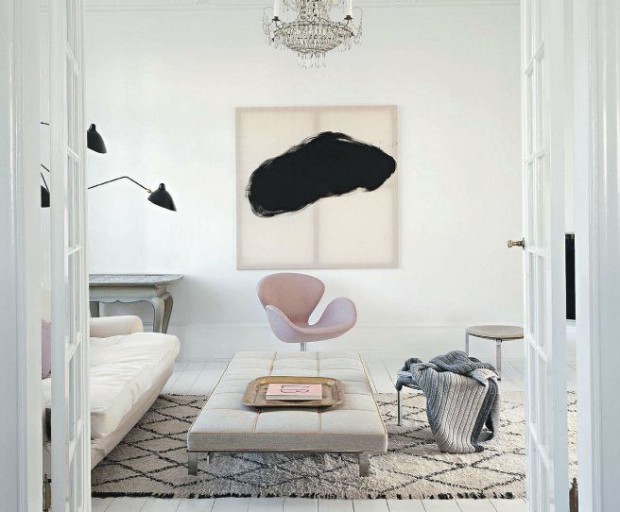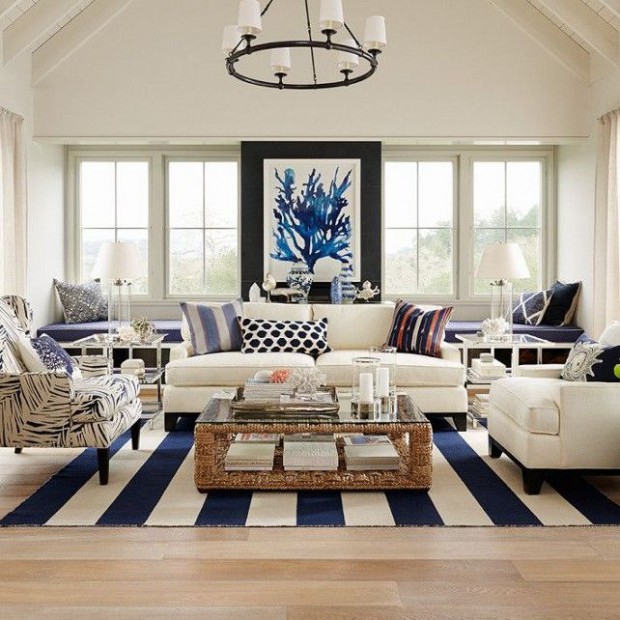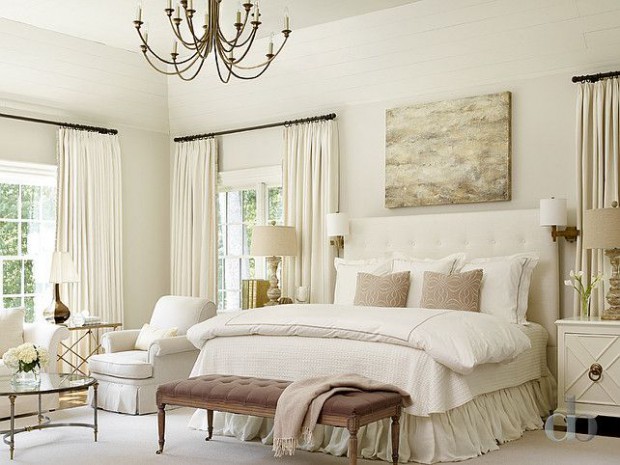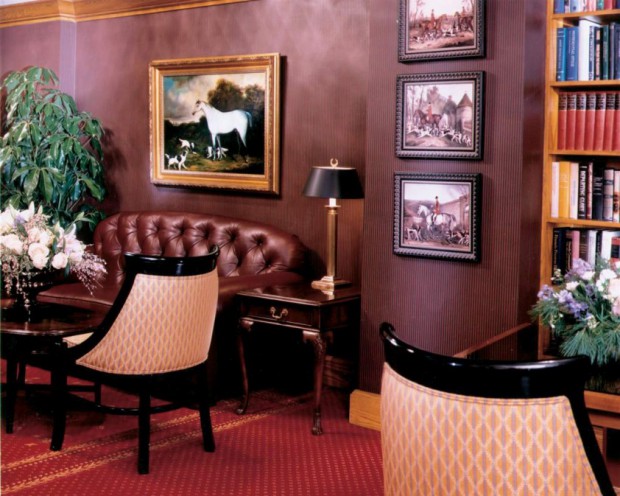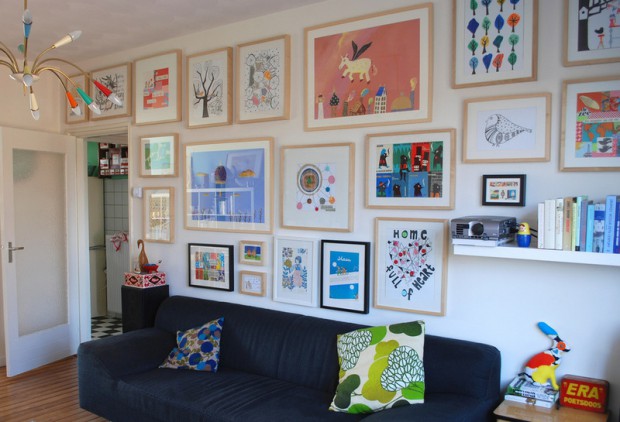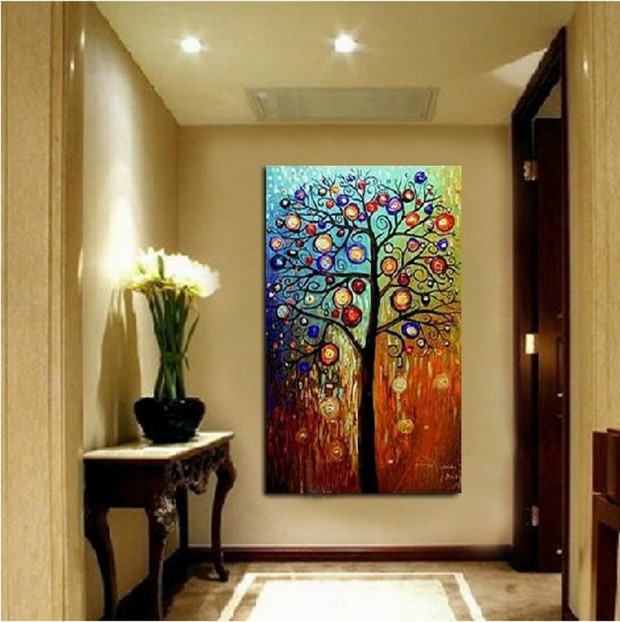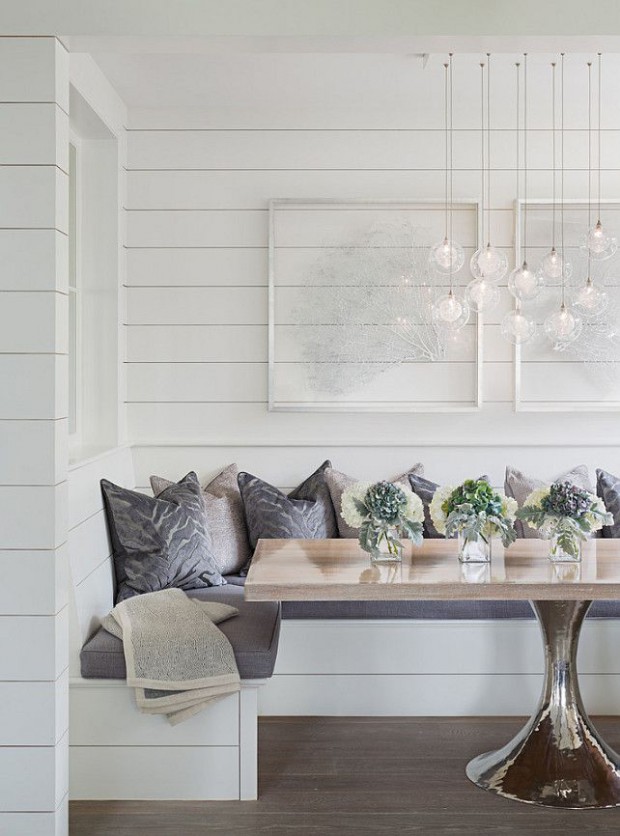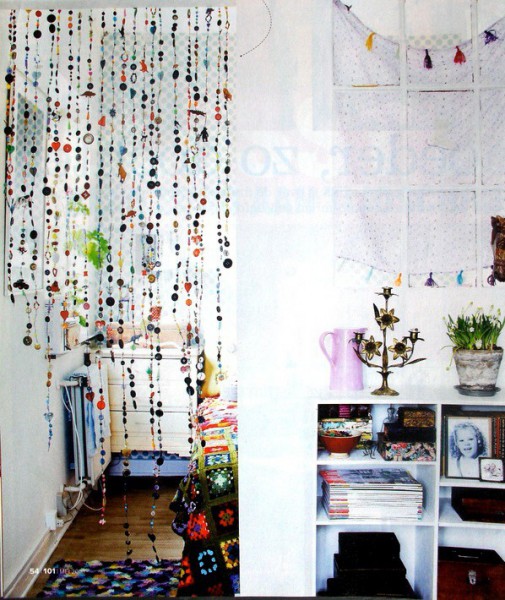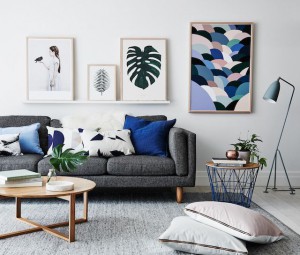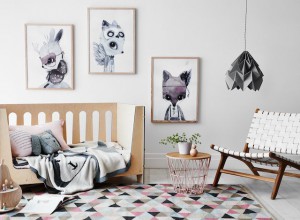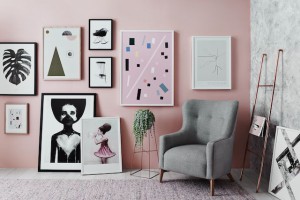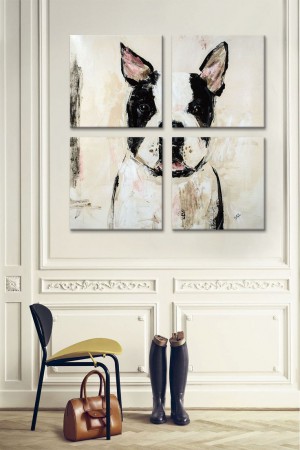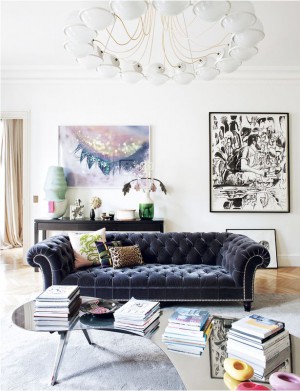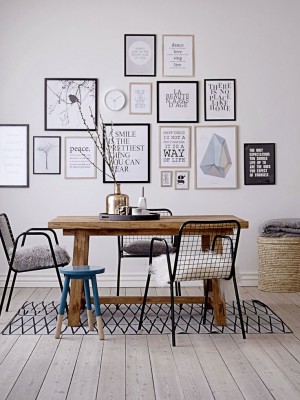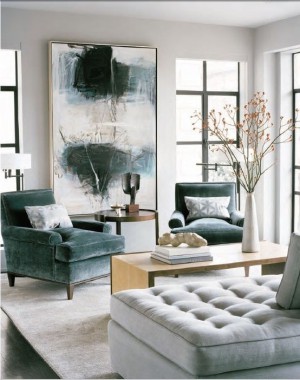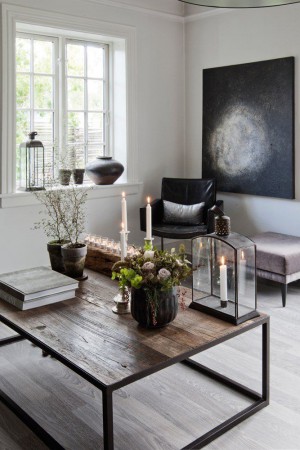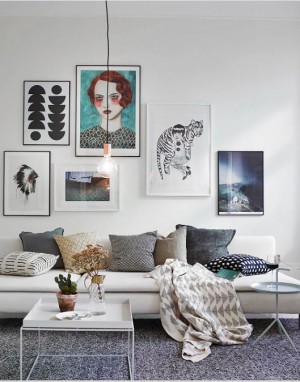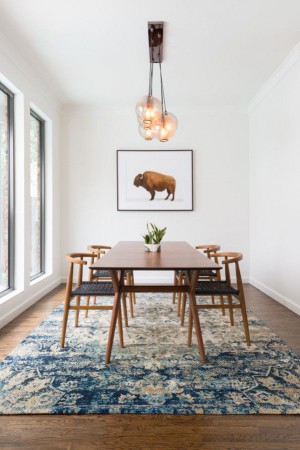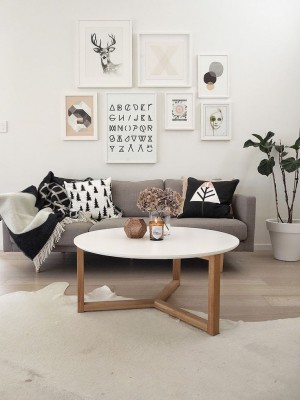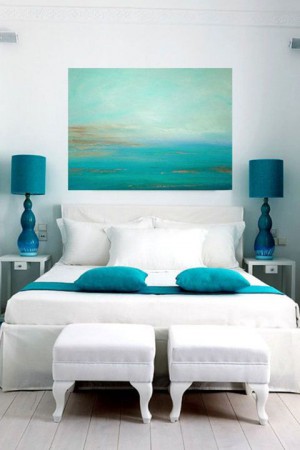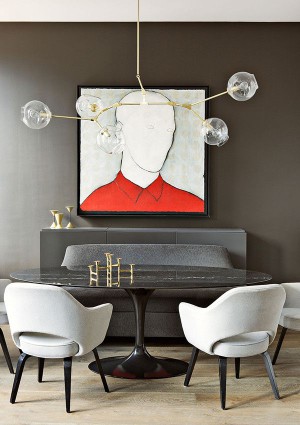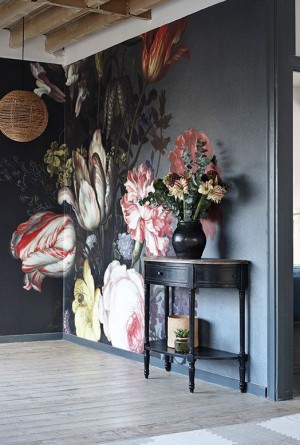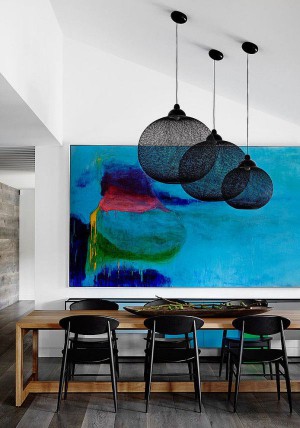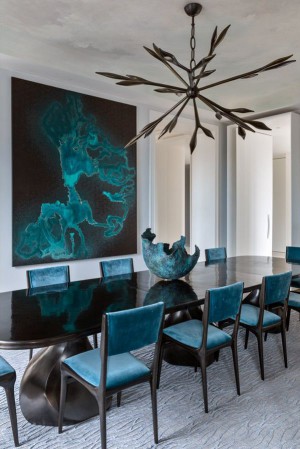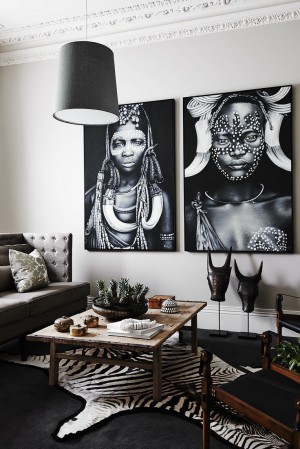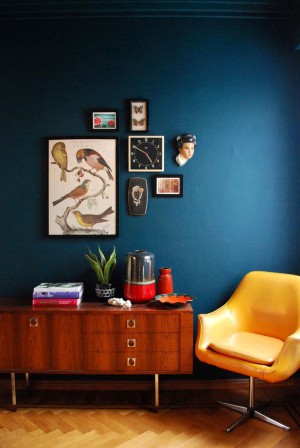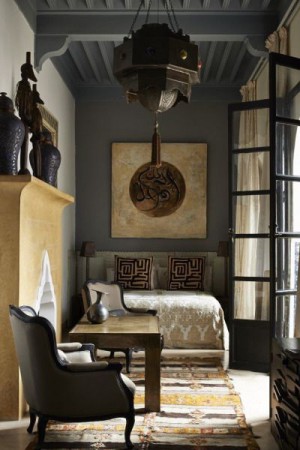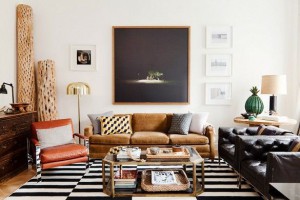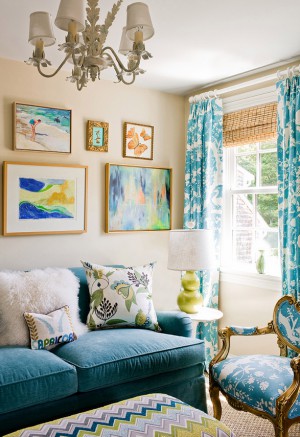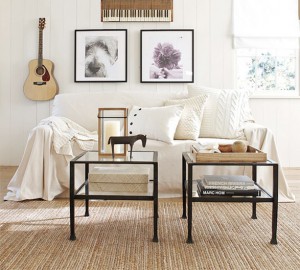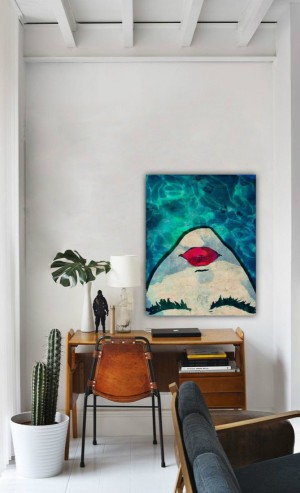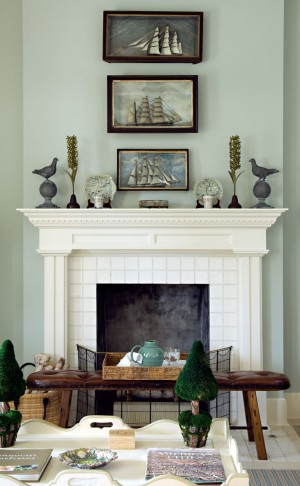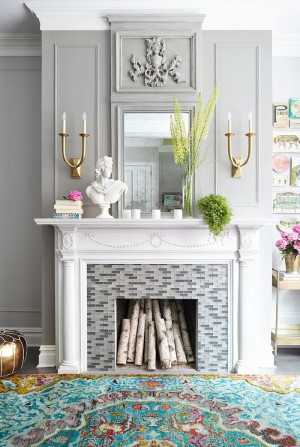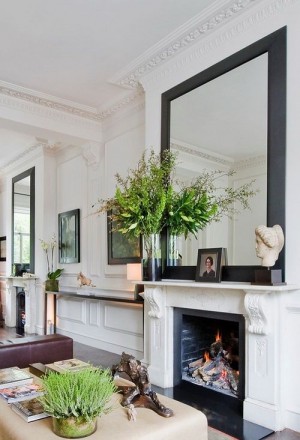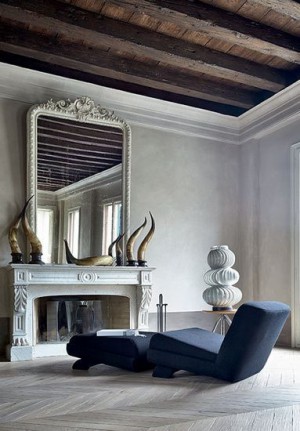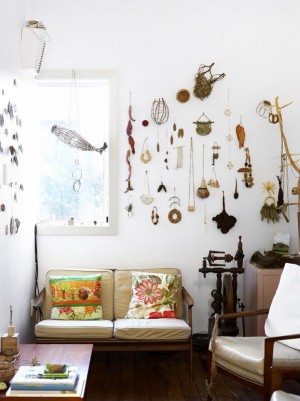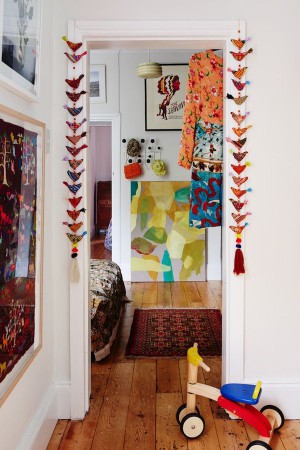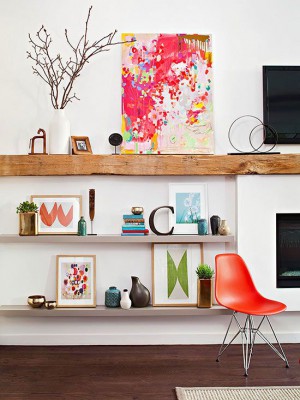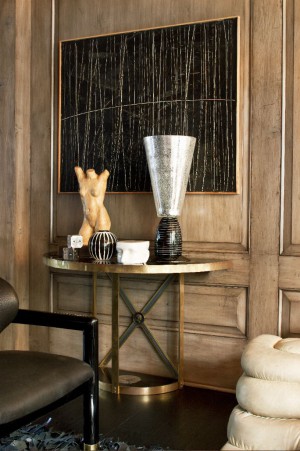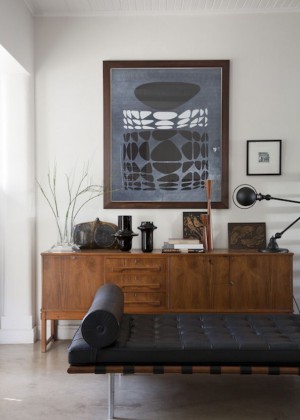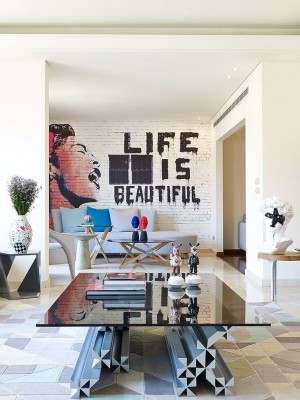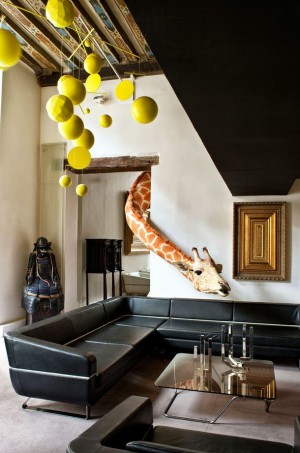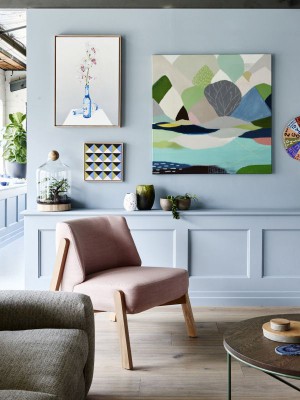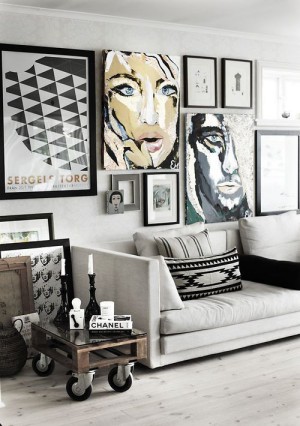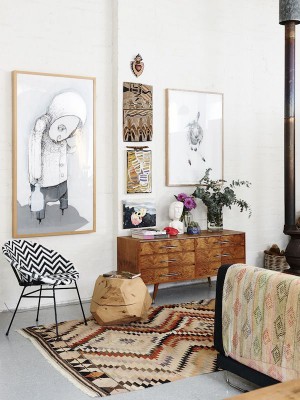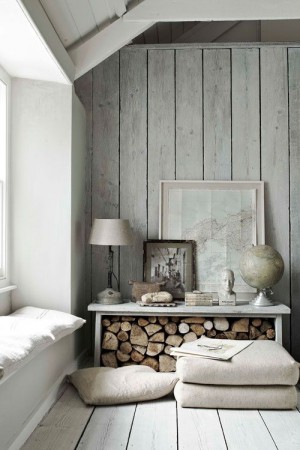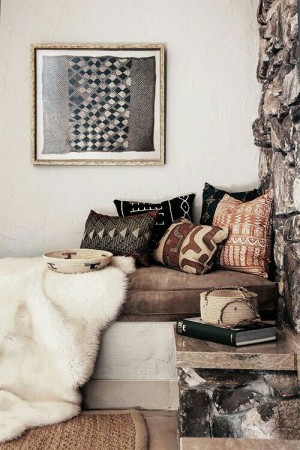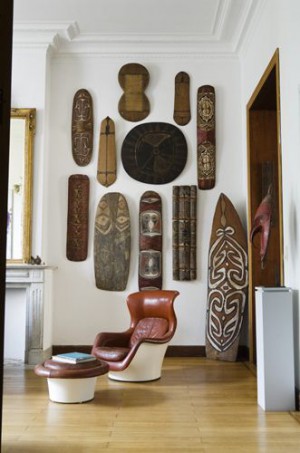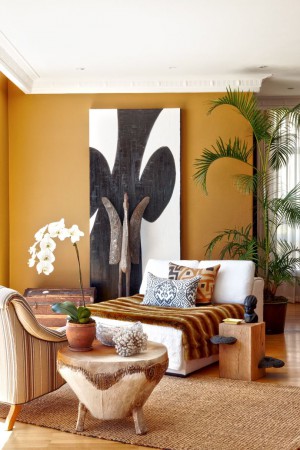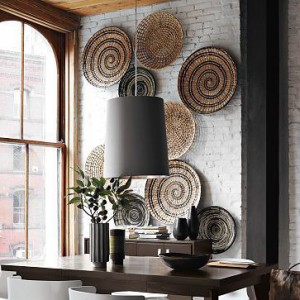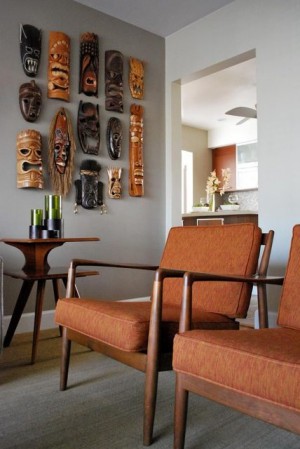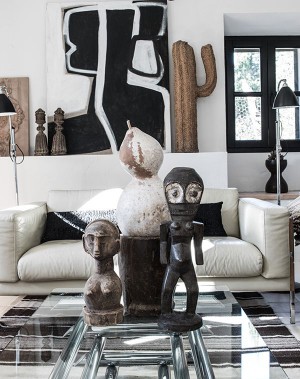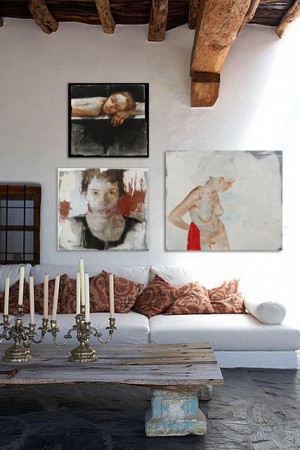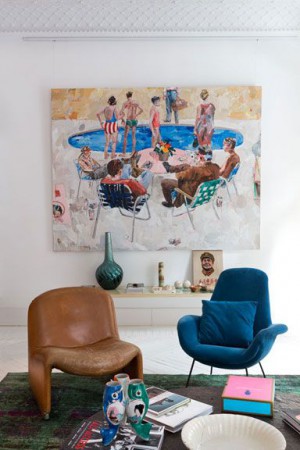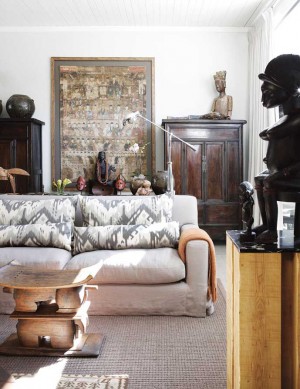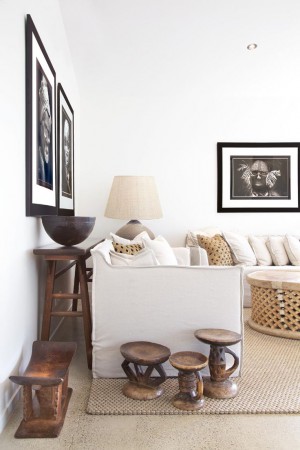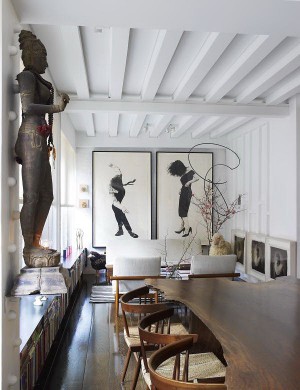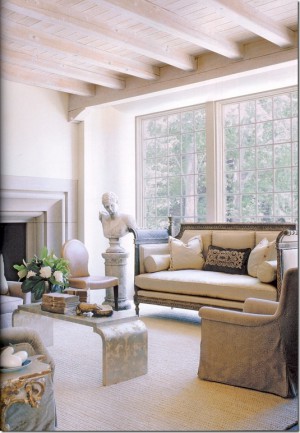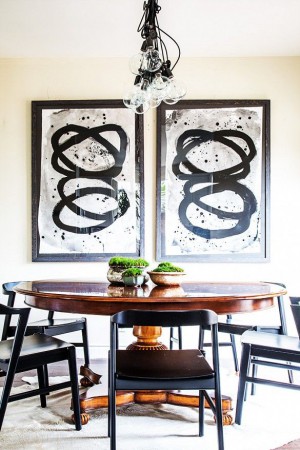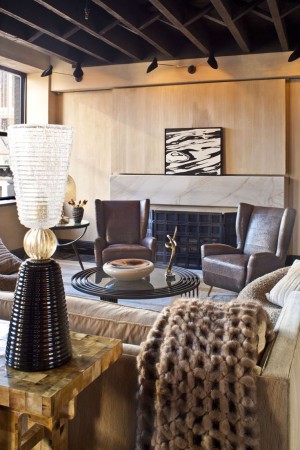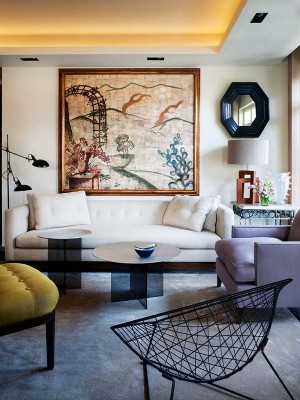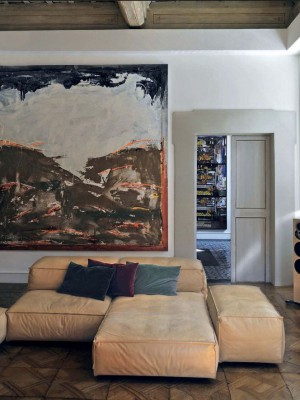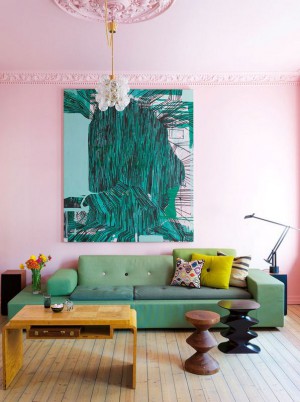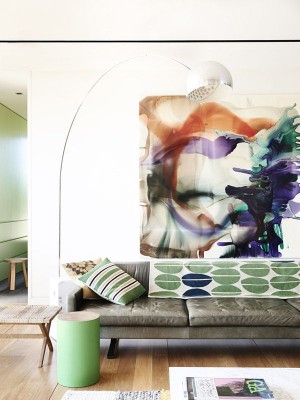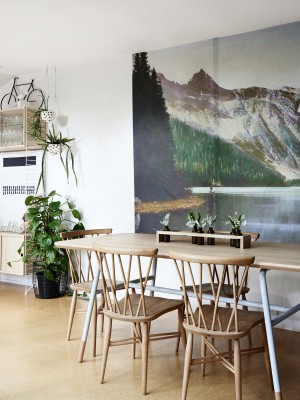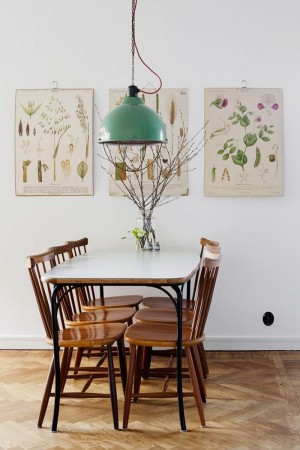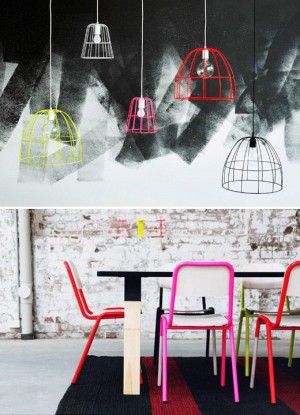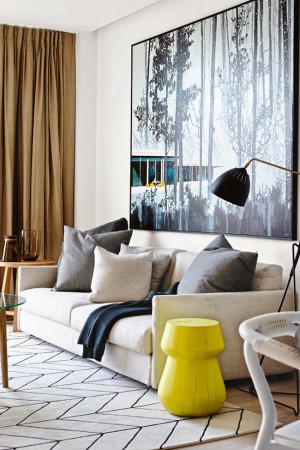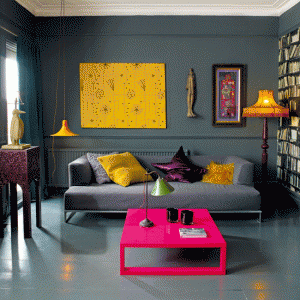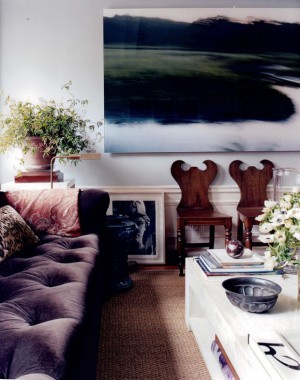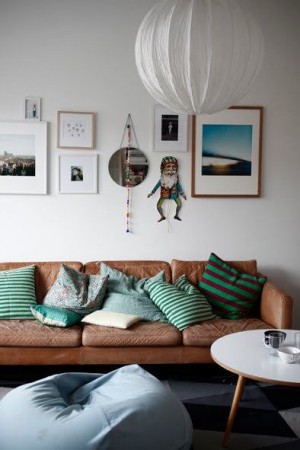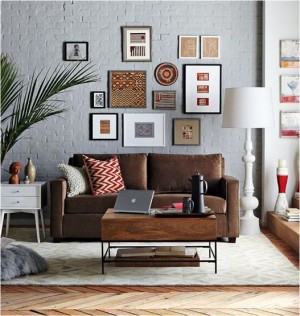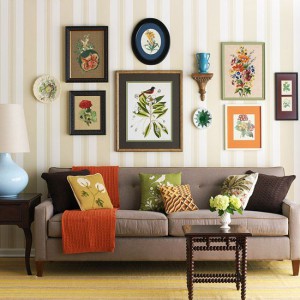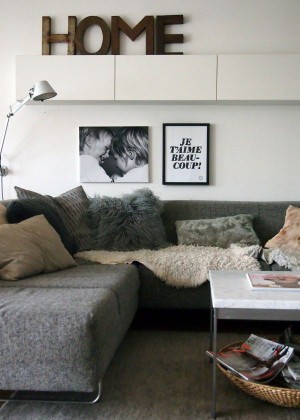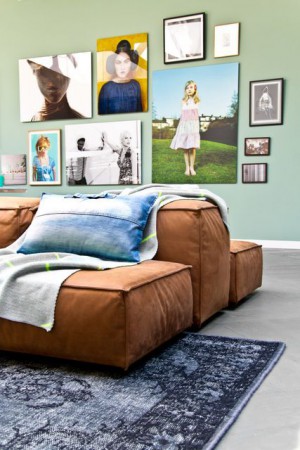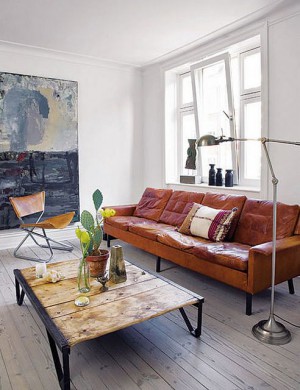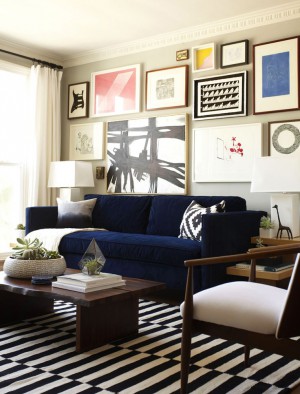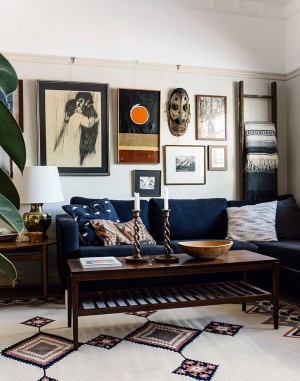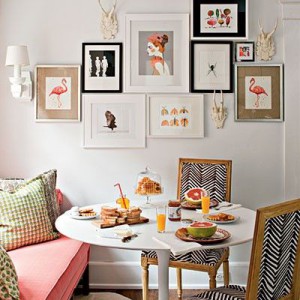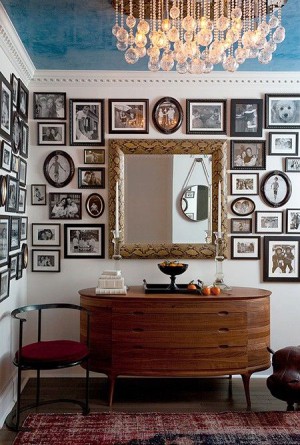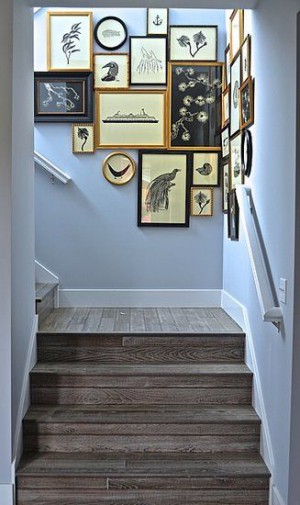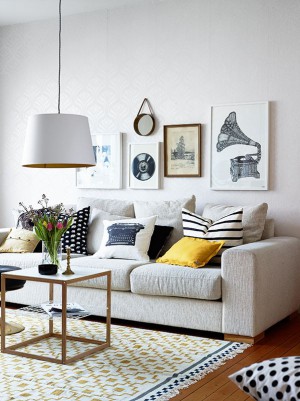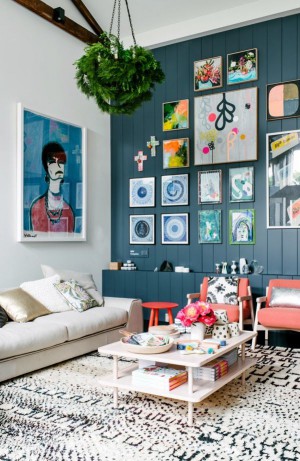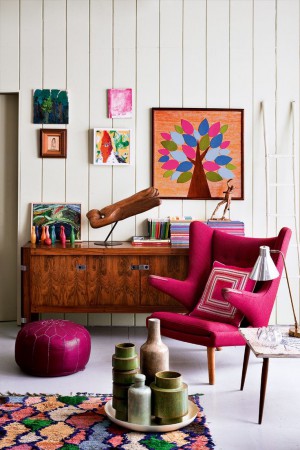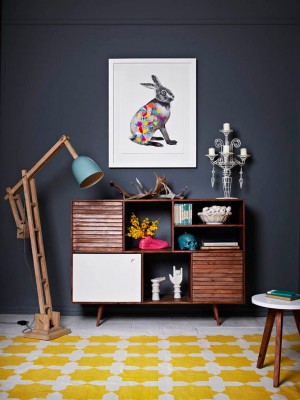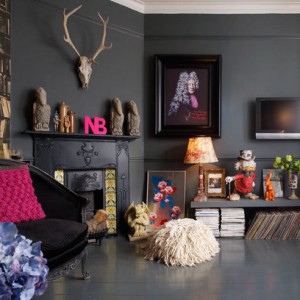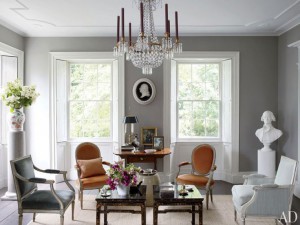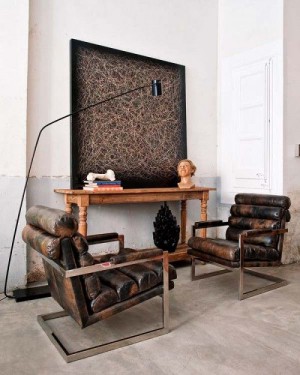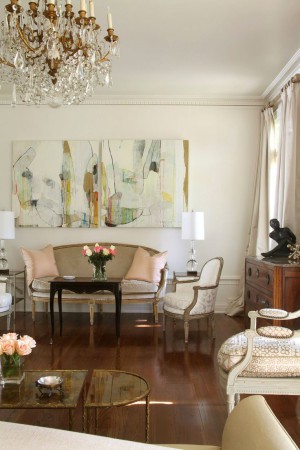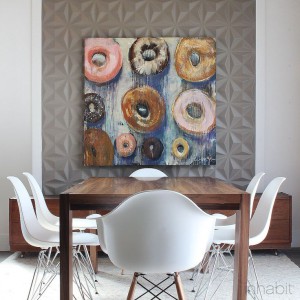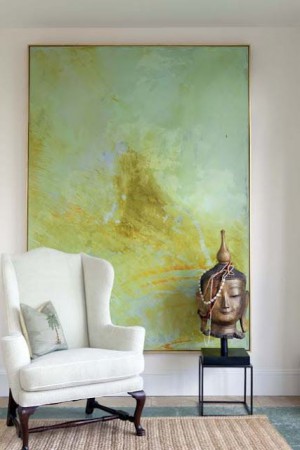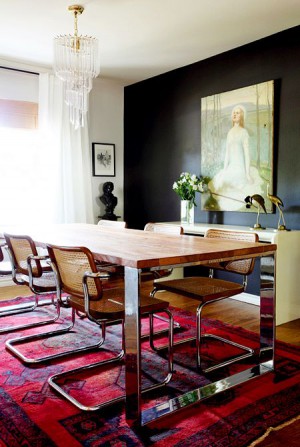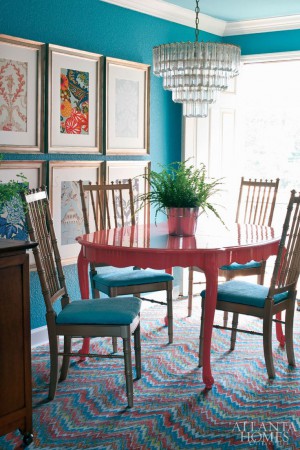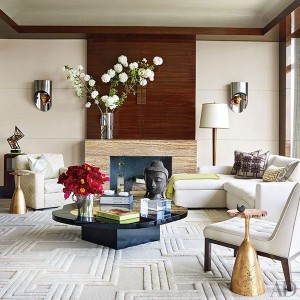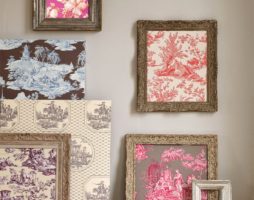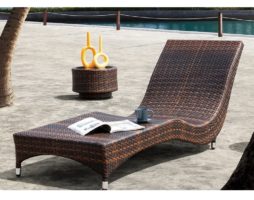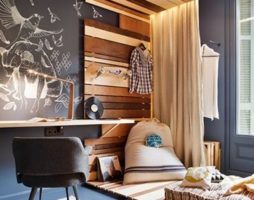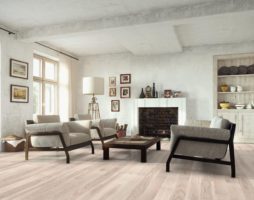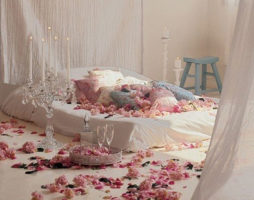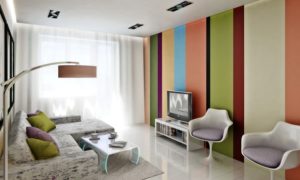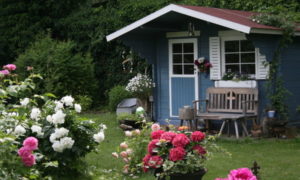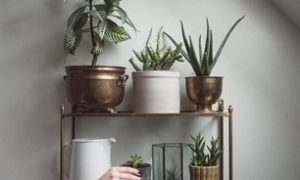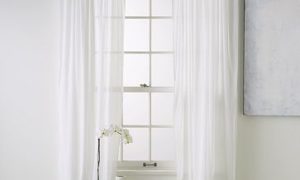Modern houses are truly magnificent. They have excellent architectural layouts. They are finished with the best materials, but original decorative elements bring real originality to the atmosphere. Art in the interior becomes that coveted accent that brings with it an atmosphere of absolute perfection.
Sculptures, glass art objects, author's dolls, textile collages and, of course, paintings perfectly cope with this task.
The power of art is undeniably great, and so that it does not unbalance the smoothness of everyday life, painting and sculpture must certainly find their place in the house. How to do this, we will tell in this collection.
back to index ↑Sculpture in the interior
“Very often, small objects of art, having appeared in the interior in single copies, subsequently become a collector's item”
People have always wanted to decorate their homes. In ancient times, figurines carved from bones, snags or stone served as decorative elements. Some of them were just a toy, something was considered a talisman, protection of the house. Time passed, but the sculpture did not leave people's homes. She just transformed. Materials and manufacturing techniques have changed. Peasant houses were filled with clay cockerels, dogs, little men. In the residences of aristocrats, antique statues and marble lions kept order. Such typical sculptures fit perfectly into ethnics, as well as into the classics. However, contemporary art has introduced new, no less worthy examples of sculpture into interiors that meet the requirements of modernity, minimalism, and hi-tech. It remains only to choose the right option.
It must be remembered that the sculpture installed indoors performs exclusively decorative functions. There can be no question of its practical use. With its help, you can’t close a hole on the wall, you can’t correct the space, although there were cases when ancient statues were turned into ordinary hangers, which only confirmed the unspoken statement that this piece of furniture is able to reveal all the secrets of the inner world of the owners, emphasizing the presence or, on the contrary, lack of taste and personality.
The art of sculpture in the interior does not rush at random. To get a really decorative little thing to your liking, arrange a mini-test for yourself. It will help you decide what to look for. To begin with, decide which type of sculpture appeals to you more: round or embossed. The first ones include:
1. Busts.
2. Statues.
3. Sculptural groups.
The latter are represented by high relief and bas-relief. Next, you need to decide on the genre. You can stop at the image of historical scenes, some plots from mythology, the figures of the gods of Olympus, or choose a portrait direction.Or maybe you will be interested in symbolic images, like seven elephants, three monkeys, a snake biting its own tail.
The third question of the test will be the material of manufacture. Modern statues are made from:
1. Ceramics.
2. Gypsum.
3. Porcelain.
4. Stone.
5. Wood.
6. Crystal.
7. Metal.
8. Ivory.
9. Papers.
The list of materials also indicates how the statues are made. It can be seen that they are obtained by casting, molding, forging, chasing, carving.
How big your figurine will be depends on where you plan to place it. Large statues are set on pedestals. Medium ones look wonderful on mantels and shelving. Miniature items will require illuminated shelves, although they can be placed on a chest of drawers, coffee table, or console if desired. Very often, small pieces of art, having appeared in the interior in single copies, subsequently become a collector's item.
Regardless of the size of the sculpture you choose, you will need free space, effective lighting and the right background to position it. Free space is especially important for small figures, because it is very easy for them to get lost in the background of other things.
Where and what to put?
Large statues are installed only in large rooms and halls. Do not turn the interior into a museum. It is enough to decorate it with several medium or one large statue.
In the bedroom, medium-sized figurines are often placed at the foot of the bed, while small ones are placed on bedside tables.
In the nursery, it is not recommended to purchase fragile, metal or expensive figures, because they are potentially dangerous for the baby.
In the office, the place of the sculpture is on the desktop or on a special shelf. It is important to choose something solid, you see, there is no place for gypsum pigs here.
Art in the interior and decor styles
In order for the sculpture to harmoniously fit into the environment, it must be selected in stylistic harmony with the interior design. So it is good to add plaster masks, antique marble sculptures, busts of celebrities to the classic decor.
The place of porcelain angels, amusing little animals, shepherdesses, pastoral scenes is in Provence and Rococo.
The Russian style is filled with wooden and clay figurines, painted in the Gzhel technique, as well as nesting dolls, etc.
Oriental interiors are the realm of bone and bronze figurines of dragons and other mythical creatures.
Minimalism accepts only metal products made of natural, unpainted wood, ceramics, and the statues must have a concise form and amaze with smooth lines. They can depict not only animals or people, but also some kind of abstraction. It is permissible to introduce the art of sculpture into the home interior with copies of world masterpieces. In this sculpture has an undeniable advantage over paintings.
back to index ↑Painting in interior decor
Once the icon was an indispensable element of home furnishings. She was enclosed in silver and gold salaries. Precious stones and enamel served as an additional decoration. Over time, this made the icon not only an object of cult worship, but also a real decoration of the interior.
From ancient times came to our homes and tapestries, tapestries, paintings. It is with them that today the residences of wealthy people are decorated.Often, when decorating rooms, designers use a continuous trellis hanging, in which the entire surface of the wall is covered with paintings.
Art, having appeared in the interior in any of its manifestations, surely fills the house with a unique comfort. It is very rare in which apartment you will not find etching, printmaking, engraving, photography, reproduction or painting in the decor. Each such object literally pours out information, and not everyone encourages to create. Some plots are able to share a joyful, bright mood and bring good luck to the house, while others, on the contrary, sow depression, driving everyone who looks at them into despondency.
What the effect will be depends on the theme of the plot, the color scheme, the location of the element. These facts only confirm that the choice and placement of paintings in the interior is indeed a great art that needs to be learned. When choosing them, you need to think about how the paintings will be combined with other decor accessories and whether they will fit into the existing environment at all..
A lot does not mean beautiful. This rule regarding paintings is more than relevant. Art in the interior does not always have to carry a single canvas. It can give the impression of asceticism and fail to become the final touch of a single interior. Too many reproductions will lead to an overload of the interior, which will also not add a positive atmosphere, so learn to look for a middle ground.
Paintings in the interiors of rooms
The picture should bring positive emotions to the house, so try to avoid apocalyptic and battle scenes. And for each individual room, the theme of the works will be specific.
In the living room, for example, it is good to hang landscapes and bright canvases in the spirit of impressionism.
The bedroom is a room with a peaceful atmosphere and the paintings for it should be in restrained colors with paired images.
Harmony in the kitchen will bring a colorful still life or paintings depicting flowers. A good addition to the painting will be ceramic vases and decorative dishes.
It is better to enliven the office with mountain landscapes or hunting scenes. The art of painting on such a subject brings the energy of stability, reliability, and confidence into the interior. You can place an image of water in front of the desk, and it will bring wealth and good luck to the owner of the room.
The easiest way to decorate a nursery. The child himself can become the author of pictures for its decor. If the kid does not have a penchant for drawing, then look for something from the children's theme for his room. These can be images of animals, fairy-tale characters. A sailboat would be appropriate in a young man's room. It symbolizes the upward movement. The room of a young girl will be very successfully decorated with images of peonies, because these flowers are considered a symbol of a successful marriage.
The corridors and hallways are somewhat gloomy initially, and the bright abstractions that appear in them will come in handy.
As you can see, the role of art in the interior is very diverse. Its elements carry with them not only aesthetics, but also mysticism, namely the latter, which is sometimes lacking in our measuredly current life.
Where should the picture "live"?
Not every canvas will be able to stand out in an environment of rich colors, so a softly painted wall will be the best background for paintings. In order for the canvas, made in soothing colors, not to be lost on the same pastel background, it must be framed in a contrasting frame.A common mistake is to place paintings on poorly lit areas of the walls. For a picture to sparkle with colors, it must be bathed in sunlight.
Few people know, but with the help of paintings it is very easy to correct the perception of space. Do you want to smooth out the unpleasant impression of the bulkiness of the sofa? Hang pictures over it, and it will visually “shrink”.
If there are quite a lot of paintings in the house, you can try to create a real gallery out of them. This will add originality to the interior.
back to index ↑What else brings art to our homes?
"Another element of art, often present in the interior, is the author's doll"
Another element of art, often present in the interior, is the author's doll. They are placed on shelves or seated on sofas. Most often, such dolls are made for the appropriate interior and are ordered to the master on an individual basis.
Stopper dolls are popular today. They are more functional than just "friends" sitting in places. In addition to decorating the decor, this type of doll serves a completely banal purpose - it does not allow doors to slam.
Interior garlands will help to quickly change the situation in the room, fill it with a festive atmosphere. They often decorate housing for Christmas, Easter, New Year, family celebrations. Such garlands are also made to order, so the interior is guaranteed individuality and uniqueness.
Textile pendants also bring art to the interior. This small element helps to add zest to the exterior of curtains, the appearance of doors, furniture or decorates other details of the situation. Pendants are made in a wide variety of shapes and patterns. It can be gingerbread men, fruits, hearts, birds, flowers, leaves, etc.
back to index ↑Conclusion
If you want to have an extraordinary interior design - fill the atmosphere with elements of real art. Forget the phrase "this reproduction (engraving, sculpture, panel) is too small / large for this room." Well, what else can amaze the human imagination than an extraordinary shift in the coordinate system? You just need to learn how to manipulate it. Do you still think that the image of some gigantic horse will completely “crush” a tiny bedroom? But no! It will just completely transform it. Art in the interior can appear in any form, the main thing is that the elements representing it are perceived adequately. And today, professionals cope with this work with a bang!
back to index ↑Photo gallery - art in the interior:
- Donna Dotan Photography Inc.
Video:

